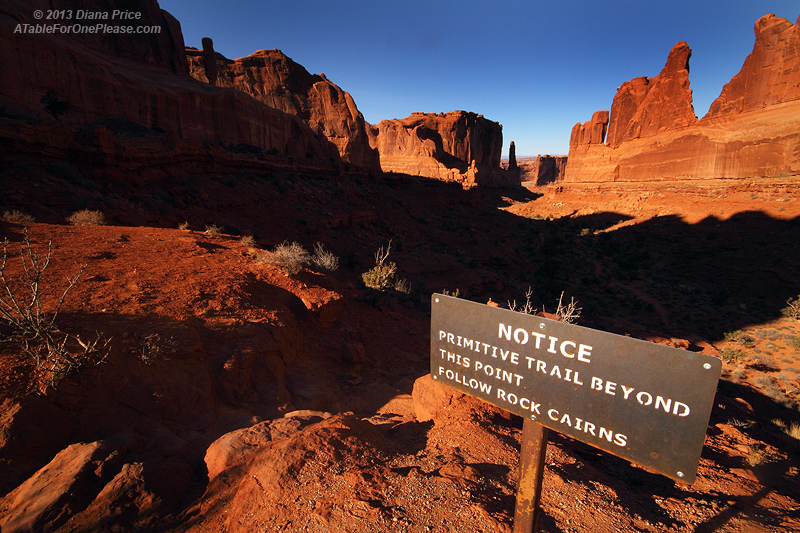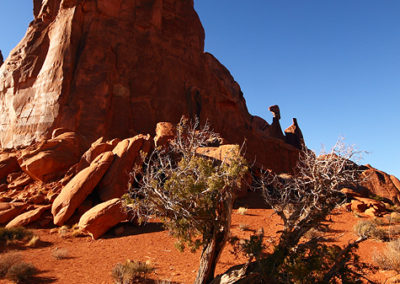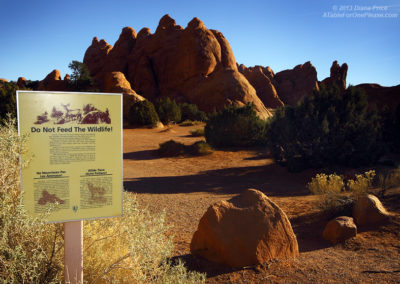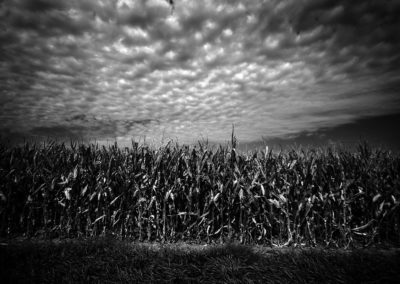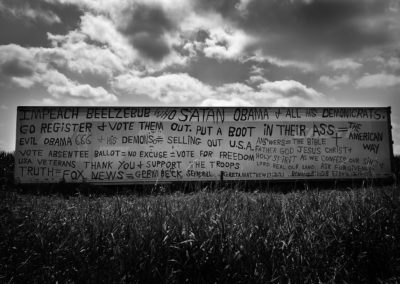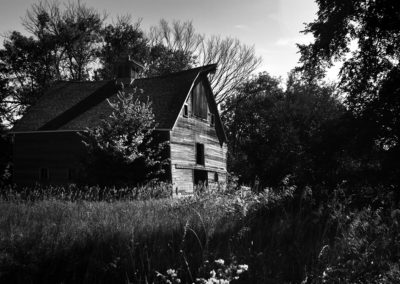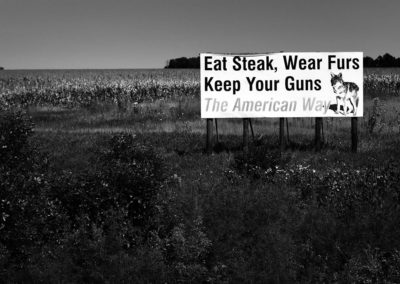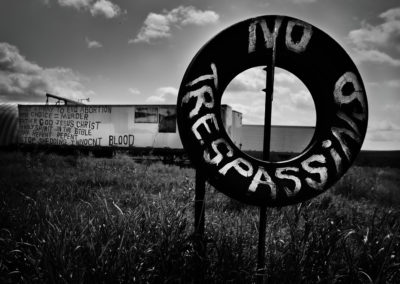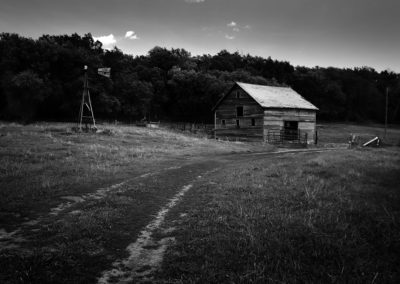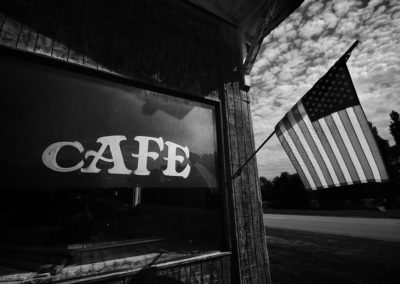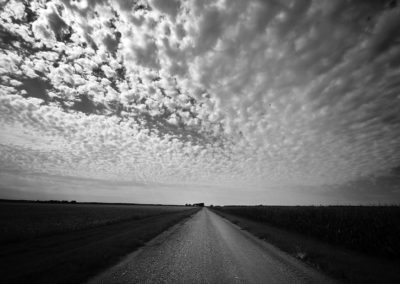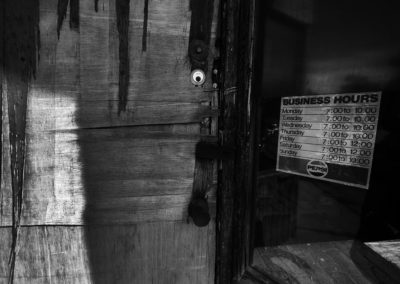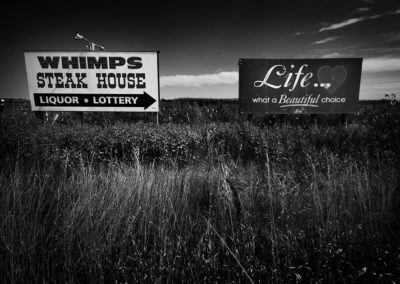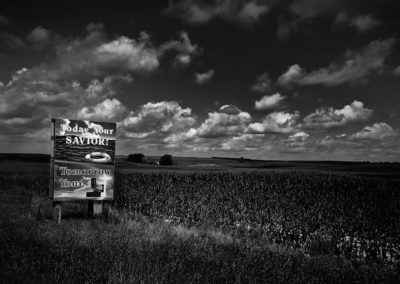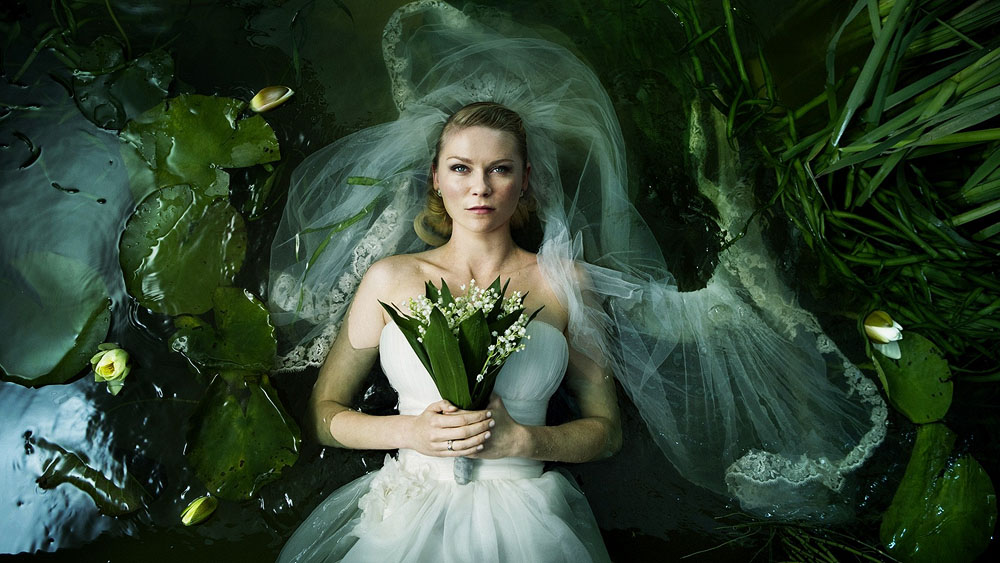
(This article orginally appeared on Examiner.com 10/6/14.)
Everywhere you look these days, it seems like there’s a pregnancy horror film coming out, from the Hollywood production of “Devil’s Due,” to the NBC remake of “Rosemary’s Baby.” But independent filmmakers Brian Netto and Adam Schindler actually were the first of this current wave with their film “Delivery: The Beast Within,” which was released on DVD September 30. The indie film world vs Hollywood may seem like an unfair match, but the two friends were determined to make their film their way, and sat down to discuss the making of “Delivery” and tackling the horror genre they love so much as writers and directors.
DIANA PRICE: So how did you guys team up creatively to create a horror film?
BRIAN NETTO: Well, we’ve been friends since like 4th grade, so that’s pretty much the answer to that question. We were friends since fourth grade and grew up in Minnesota and just started making movies. It’s the same old thing; we started making movies in 6th grade running around with a camera shooting bad remakes of “Child’s Play” with Cabbage Patch dolls… I’m sure our parents thought it was a phase at some point, but it just never stopped.
ADAM SCHINDLER: It was a long phase…
BN: We always just wanted to make movies like this. After college we saved up money and said “Are we going to do this as a job? Let’s see if we can do this,” and drove out to Los Angeles with the U-haul and all that. We’ve been out in Los Angeles now for about 13 years. That’s pretty much the story.
AS: That’s us in a nutshell. Obviously coming to Los Angeles… We came without any connections or jobs really, so we just moved out and did our best to learn how this industry works while working within it, and then figured out what’s the best way we can get in ourselves and create and make a film. So it was just a matter of navigating that.
BN: We’re genre fans, so we love everything about genre films. We love all films but specifically genre films. So “Delivery” was never a conscious choice: “Oh, let’s do a horror movie because that’s a good starting point.” It was just always what we wanted to do.
DP: It was the obvious choice, because what else is there besides horror?
BN: These are the movies we want to watch; these are the movies we want to make.
AS: We got a lot of “Oh, that’s really smart doing a horror film.” It was not any sort of cash grab or anything that we thought of as a good business decision. Look, if we even tried to create a story that didn’t have some sort of genre element, it always seeps in there somehow. We like genre bending, we like mashing stuff up… it’s the stuff we’ve always enjoyed, so it was a natural first step to try something like this.
DP: So what is this thing lately with men writing about pregnancies from hell? Do you men really have a deep-seated Freudian thing about pregnancy?
BN: I think its a very frightening time in general. It’s a frightening time regardless of the fact that we introduced a supernatural element. But there’s so much that’s unknown, All we can obviously do is speak from a man’s perspective but there’s so much that’s out of your control And as filmmakers, filmmakers in general, they love control. You love putting your thumbprint on something, you love your vision, you want to get that across, and this is something we literally have no control over. I think that’s even more frightening than just the unknown that comes with a child coming into the world.
AS: It’s not just inherently scary, pregnancy and having your first child, but its also the changes that your wife or spouse or partner is going through. I have a three and a half year old and my wife was pregnant through the whole pre-production and production of “Delivery” and literally gave birth two weeks after we finished shooting. So I was in it; it was like watching my wife kind of change in subtle ways. The hormones in their body makes them change so that’s scary too, it’s not just the impending birth of your first child. It’s watching your wife kind of change and shift into a different person, too. Becoming a mother, she’s already a mother in my opinion at least… she’s carrying the child for nine months, it’s already growing in her. My idea is fathers don’t become fathers until the child is born. They’re there to be a companion to their spouse while they’re going through pregnancy, but until they actually see the child and have to start parenting, they don’t really become a father.
DP: It’s sort of an abstract concept for men till they can hold or feel the baby, whereas the mother feels it moving inside her throughout the pregnancy. It’s not really real till you can touch it or feel it. But that must have also made it more stressful making this movie about everything that can go wrong with a pregnancy.
AS: For me it was actually calming, because it was like we were going to such extreme places in the movie that our pregnancy in real life was peanuts compared to this. It actually was kind of nice because we did tons and tons of research before we wrote the script, so I kind of had my brain wrapped around it, way before… a couple of years or so before we actually got pregnant. I had my brain wrapped around it far more than my wife did.
BN: Our lead actor gave birth two weeks before we started production; then Adam, his wife giving birth two weeks after production, we had babies on the brain and it was really helpful to have so much real life experience to draw from. That was important to us. And obviously we did research… [although] midwives were tough to get a hold of once we told them what the film was about… but we wanted the birth sequence to feel really, really drawn out and worth the wait.
DP: There was a wave of pregnancy horror films, but really, because your release time was slower due to being an independent film, you guys were really the first of this wave…
BN: Thank you for recognizing that! A lot of people are like “Why did you make a rip off of ‘Devils Due?'” We actually premiered “Delivery” at the LA Film Festival before “Devil’s Due” was even shot.
DP: Right, and the whole remake of “Rosemary’s Baby” Which was like, why bother remaking a good film? But that’s Hollywood and especially horror. But has that helped give a boost to your film with all of these other films coming out?
AS: The response in general has been really, really positive. That’s been great. Obviously people have seen it over different periods of time when we did our festival run. We sold out of LAFF (Los Angeles Film Festival) but then we didn’t have our release until probably a good 11 months after that and in that time period there were a number of pregnancy-themed horror films that came out. So for the people who had seen ours first, they were kind of touting ours. And then actually, after the fact now, there’s a curiosity factor because there were so many that came, it was just like “Hey, what’s one more? Let’s check out another one.” But also in general, horror fans tend to be very… you don’t usually compare dramas to dramas, but for whatever reason horror films get compared: vampires films are compared to other vampire films, ghost stories to ghost stores. It’s almost like you are very aware of what other people are making, and for the audience they seem to love to see a different version similar of a similar theme. I think ultimately a great number have responded favorably, but I think the fact there are so many, it does beg the question… what is it about this…
BN: What’s in the water?
AS: What is it about this subject that is hitting? Audience members clearly haven’t soured on it yet so they’ll just keep making them till that happens.
BN: The good thing about it is with “Devil’s Due” coming out before our film, you know there’s two different versions of even the “found-footage, demonic pregnancy” movie. I mean, “Devil’s Due” is the big budget Hollywood version; ours is the slow-burn indie version, so its not for everyone. So for the people that didn’t like “Devil’s Due,” maybe they’ll like our movie because they prefer the slow burn. We will be the first to say our movie is not for everybody. It’s definitely not for everybody, but for people who like those slow burn horror films, we hope that they like ours, you know what I mean. That’s what we were going for. There wasn’t any budgetary constraints; that wasn’t the reason. We always wanted to make it the slow burn.
AS: It was always going to be performance driven, in part particularly because of the total shift and you need time… and its a difficult trick to pull off going from one genre to the next. That transition needs to be handed off very carefully and we just took our time doing it and we’re hoping the audience was going to go with it. I think the great thing about the first part of the film, reality television has this knack for sucking you in and before you know it the show is over and they’ve accomplished very little in the scheme of things. It’s a reality show about grocery shopping, but for whatever reason, 20 minutes in you’re just watching these people live their lives. And that was the hope with “Delivery,” that 20 minutes in you’re watching these people live their lives and you’re kind of sucked into this story.
BN: And you care about the characters. It was also a subtle way of getting the audience to actually care about Kyle and Rachel without them knowing they are caring about Kyle and Rachel.
AS: Which is funny because so many people bring up the fact that “You must really like your characters.” Well, I hadn’t really thought about it that way… I think so often in horror films you don’t care if someone lives or dies and if you’re at that point, unless your goal is really interesting with never-seen-before kills or just showing off effects work — which is not the goal of this film — then you’re in trouble because that should be the goal, survival.
DP: You know, horror fans are tough to please and a hard audience to shoot for. Most genre films go for that big “Boo!” moment at the beginning, then keep hitting people with more of the same even though you do risk not being able to develop characters well and make the audience care about them when you take that approach. Having said that, in a culture that is so ADHD, were you afraid people wouldn’t stick with the film as it turns from a light reality show to the eventual horror?
BN: We weren’t concerned about that. We felt if it was engaging enough — and those reality shows are — that people would be fine with it being introduced that way. There were other people that we brought in, at a later date, that we brought in to give us their thoughts… [But] we felt if it’s interesting enough and the characters are engaging enough, that you’ll be interested in seeing what they are doing. That’s the beauty of reality shows.
AS: I’m going to say one slight contradiction. We were slightly concerned with it, but not enough to put us off what we were going to do. We were very aware looking at it that this was going to alienate a certain element of the audience and in particular a certain element of the audience that you just pointed out. The genre audience is — as members of that audience — we know what people are looking for when they sit down to watch a film. Obviously, if you’re gonna sit down to watch “Evil Dead” you need that great opening to really hook people and get people talking and let them know what’s about to come. We didn’t have that opening, we fought against that opening, and we were confident enough in that story that we didn’t feel we needed to put that in there.
BN: We loved the fact that “Delivery” played at LAFF and played at horror-centric festivals like the Telluride Horror Show, but we did have a big “hold our breath, we’re showing this to the horror community, I hope they like it” moment.
DP: Well, if nothing else, you definitely have a promising future in reality tv if this horror thing doesn’t work out.
AS: We joked about that. We said, “Well, if we get any work in may be in realty television.” Yeah, its amazing how much you can glean from just watching a show here and there. Format wise they are all very similar; obviously the subjects are different… but, talk about ADHD. That’s basically what the shows are built on, keeping your attention with upbeat music, flashy transitions and graphics, and it works.
DP: I know your film was low budget, and you sought out cast and crew who were more interested in getting a good film credit than getting rich. That might seem like an obstacle to overcome, but do you think in some ways it’s a benefit to indie filmmaking, in that you get people who are passionate about a project?
AS: It’s huge. The only way we could have gotten this film made was — and we’re actually in the editing room right now of our second film — making sure we got people that were here for the right reasons, not here for the payday. None of us are, but if they’re here either in front of the camera or behind because they want to put their name on it, that means more than someone that’s there for a paycheck. Ultimately, we’ve all worked jobs where you just look at the clock waiting for lunch and then go home. If you’re on a film set and you have that attitude the work is going to suffer.
BN: It seeps into everything, it seeps into the actual movie. So you want people that are there for the passion… that want to direct or produce at some point in the future and this is their ticket to doing that and to getting better credit. They bust their ass and do the best job they can on this. We had a skeleton crew in comparison to even your normal indie film. We had… our crew was like, less than 25 people maybe? So everybody was wearing multiple hats, but I think the people that we brought in… everybody latched onto that, that everybody had to have several different hats and kind of liked that process of being responsible for more than just their one job.
DP: I read how you used an interesting casting method by having auditions that were improvised. Obviously, that was custom made for a found footage type film, but do you think that unconventional approach might be a great tool for other formats as well, in finding out more about your potential actors, or even triggering ideas to tweak the script?
AS: The one thing that I found — I can’t speak to what Brian thinks — I think I’ve become more aware of how much an individual person brings themselves to their characters, like everybody says George Clooney plays himself in every movie. I think that is true of every actor. What I found is that’s more true than I knew; that people bring themselves into their characters and they are those characters. Or what’s true to them they bring to that character. That aspect kind of opened my eyes.
BN: Well, we didn’t [use improvisational casting] on this latest one, but I think there are other ways to glean personality or glean where someone is comfortable at. With “Delivery” the casting process was tailor-made for that film, and I think we had people that came in that we knew were really, really good actors and actresses just because we’d seen their reel before. But if you asked them anything off script you’d get “deer in headlights…” I think its all about tailoring the practice to that particular film. Going forward, it’s not a found footage film but a traditional narrative, but we’ll do anything we need to do in the casting room to answer “Is this person the right fit for this role or not?” And I mean casting is fun, we love the casting process, so I look forward to whatever we come up with to find that out.
DP: So tell us a little bit about this second film that you are editing as we speak.
AS: Like Brian said, it’s not a found footage film. It’s called “Shut In,” starring Beth Riesgraf and Martin Starr and Rory Culkin and Jack Kesy. Its basically about an agoraphobic woman who is the victim of a home invasion, but we like to say that agoraphobia is not her only psychosis. It’s a genre mashup.
BN: It’s a fun movie.
AS: But we’re in Louisiana right now cutting that film. So hopefully it shows up sometime next year. The powers that be make those choices but we just try to make the best movie possible and enjoy doing it as we go along.
Hopefully “Shut In” will get a release before the Hollywood machine cranks out a wave of agoraphobia movies this time around. In the meantime, check out “Delivery: The Beast Within” on DVD.

